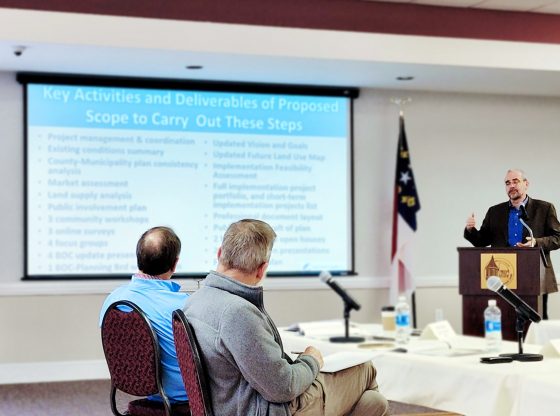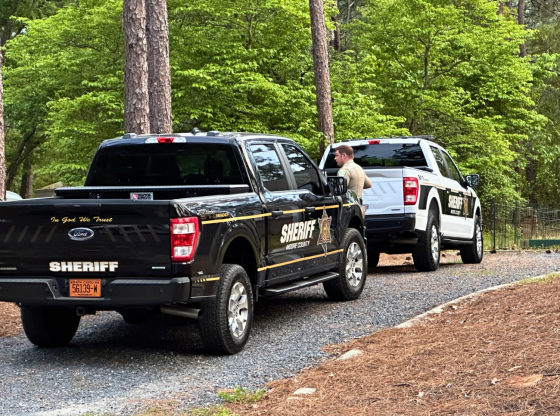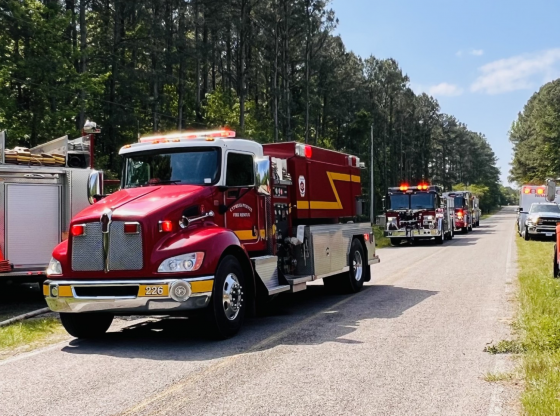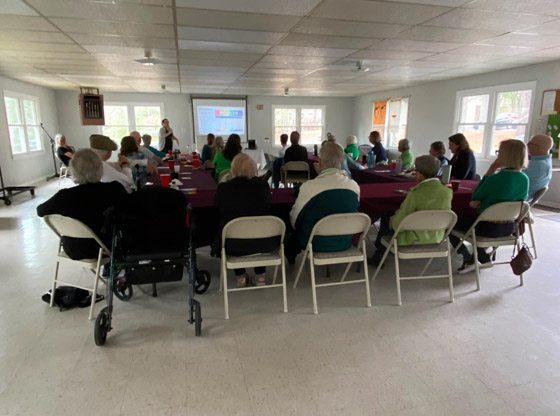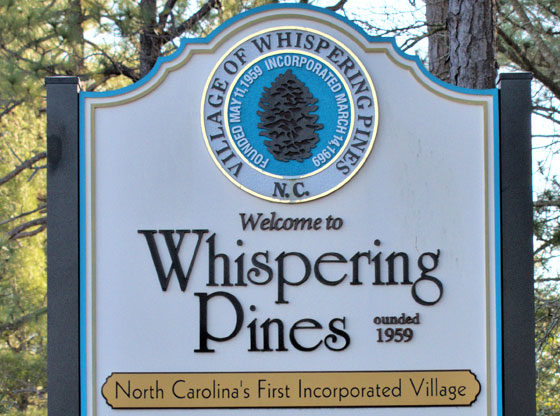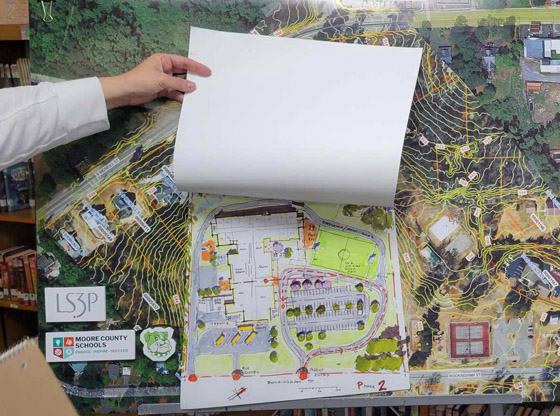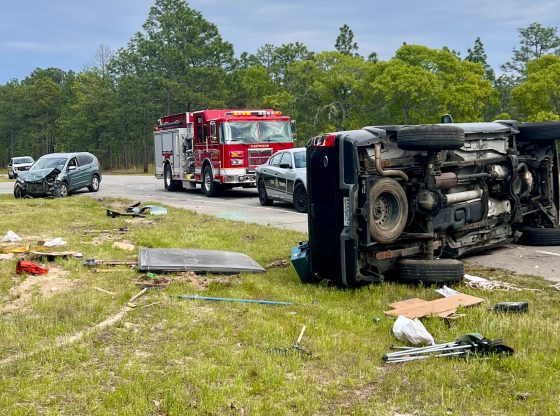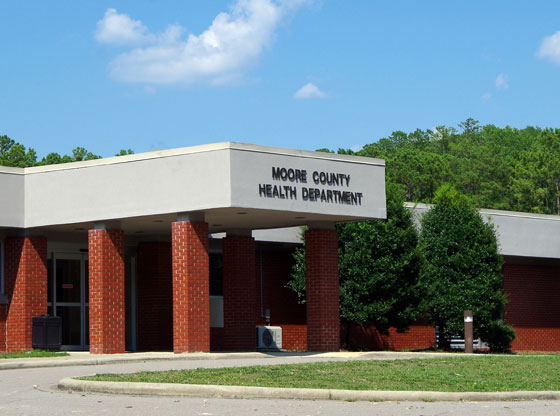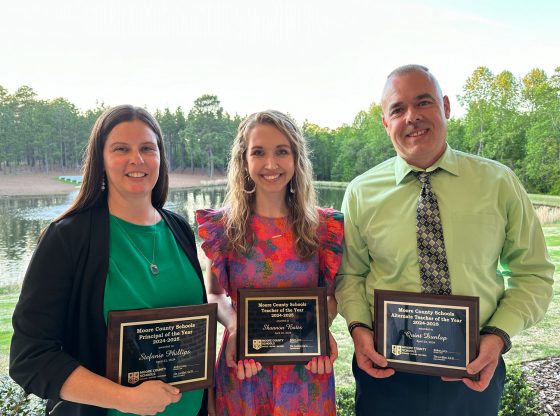The Moore County Commissioners met on Friday, Feb. 16, to discuss the Land Use Plan update and review their previous meeting with the Moore County Board of Education.
The commissioners opened the session by acknowledging the outpour of community support and feedback they heard in previous meetings. “We heard a lot of the same feelings from our citizens,” said Commissioner Frank Quis. “It’s been a wide-ranging group of citizens: from people who live in the larger towns in the southern part of the county to those in the Westmoore and Robbins areas. They [all] just want to protect what they consider their community.”
Commissioner Jim Von Canon summarized the common concerns they’ve heard repeatedly in previous meetings:
*Unease about growth and the county growing too rapidly
*Quality of homes being built
*Homes being built too close together/too many on one parcel
*Concerns about loss of farmland and clearcutting
*“Extreme concerns” about traffic
*Quality of life for the children of the county
*The deficit of employees/workers in the county and the fact they cannot afford to live here to work
*Overcrowding of certain parts of the county and lack of maintenance or preservation in others
*Preserving the history, heritage, and ambience of the county
Chairman Commissioner Nick Picerno pointed out that many of these concerns are already addressed in the preexisting Land Use Plan that the commissioners have spent the last several months gathering input for and discussing. He is opposed to recreating the Land Use Plan entirely.
“In 1999, Moore County adopted a Land Use Plan that met the needs of the citizens and future generations while acknowledging the diverse areas throughout the county,” he read. “The framework is there; now we need to work on the action items.”
Picerno summarized the objectives laid out by the previous Land Use Plan. The objectives were twofold: to provide information and recommendations for effective land use planning and to ensure equal consideration of the county’s resources.
The 2013 plan recognized the individualized nature of all towns, villages, and rural areas within Moore County. Development policies were aimed at optimizing public services and infrastructure where needed and when it was needed. Other sections of the 2013 Land Use Plan focused on sustaining agriculture and agribusinesses in Moore County. According to the plan, economic and natural resources are to be maintained properly, with support for local businesses specifically noted. Water supplies and open spaces are to be protected, recreational opportunities are to be provided, and accessibility among living, working, and shopping areas is to be maintained.
“I don’t think we need to rewrite this sucker,” Picerno said pointedly. “Have we [already] implemented all the steps of the plan? What comes out of it that gives us the best opportunity to do it in the best time frame and in the best interest of our taxpayers?”
Ben Hitchings, a planning consultant based in Durham for Green Heron Planning, attended the meeting to give a presentation about “moving forward in productive ways.”
Hitchings proposed implementing a series of steps, activities, and engagement opportunities before moving forward. Proposed activities include project management, market assessment, public involvement through workshops, surveys, and focus groups, as well as updating vision, goals, and land use maps. Hitching described his process as “tried and true.”
Members of the audience were not receptive to Hitchings’ plans. Several participants spoke out, critical of the use of nonlocal consultants and repeatedly questioned why the work can’t be done without said consultants. Others were concerned that a Durham-based urban planner isn’t connecting with the needs of Moore County as an “urban” planner. They questioned the timeline of proposed projects, both from commissioners and Hitchings.
“We want to know what’s going to work,” explained Picerno. “We want to know what goes into this process. It’s not going to happen in three or four weeks. We want to get it done right, not get it done fast.”
A majority of the citizens engaging with the commissioners were from the rural reaches of the county, where fears about overdevelopment and loss of farmland are the strongest.
Piecerno and the other commissioners encouraged the zealous, impassioned audience members to attend local town meetings for their municipalities, where their voices can be heard on a local level as the best way to see changes made.
After an hour and a half of open discussion about the Land Use Plan and general development in Moore County, the commissioners briefly reviewed their previous meeting with the Moore County Board of Education.
“The schools need to decide their needs and then come to us,” said Picerno. “We need a real, good list from the schools because I don’t want a repeat of 2016.”
The commissioners agreed that the meeting helped lay out the school system’s needs as the county continues to grow. In addition, each raised points about their own, personal areas of concern.
Quis, in particular, encouraged immediate progress to address current needs. “I’d encourage them to start with the small things — spend the money wisely,” Quis explained. “I don’t have any problem with them progressing with some of the smaller ticket items as they have government money available sitting in the bank.”
Von Canon noted that he would like to see another high school built, possibly in the western part of the county. He believes this would help with traffic, long commutes for students and faculty, and quality of life improvements. As with the previous meeting, he also brought up the need for affordable housing for teachers to help alleviate the rapidly rising issue of a teacher deficit. “They’re not workforce houses when they cost $400,000 for a little cracker box,” he commented.
He also briefly touched on a growing need for both drug abuse awareness and suicide prevention awareness in public schools. Von Canon suggested that schools bring in more local speakers to bring attention to these sensitive topics. “We’ve got to keep our kids off drugs and educate them with suicide awareness,” he said plainly. “Our children are our most valuable asset. The older I get, the more important setting children up for success is.”
Similarly to Von Canon’s earlier sentiments, Commissioner John Ritter wondered about the impact charter schools would have on Moore County’s public schools and how a new public high school could benefit the county. “I know the big thing is that we need a new high school,” he started. “If we’re going to spend the money to increase the capacity for the [preexisting] high schools, I think we should look at the possibility of building a new one. I favor that more than increasing [the capacity of] the old ones.”
As the meeting concluded, Picerno thanked the crowd for attending and engaging so openly. Despite differing opinions on consulting methods and timelines, all voices agreed on the importance of careful planning and community involvement.
“We have the luxury of building on a good economy, great citizens, rural areas, and desirable towns,” said Quis, and noted that the commissioners will “do their darndest to make some changes.”
Feature photo: Ben Hitchings, a planning consultant based in Durham for Green Heron Planning, gives a presentation to county commissioners on Feb. 16.
~Article and photo by Sandhills Sentinel reporter Abegail Murphy.


